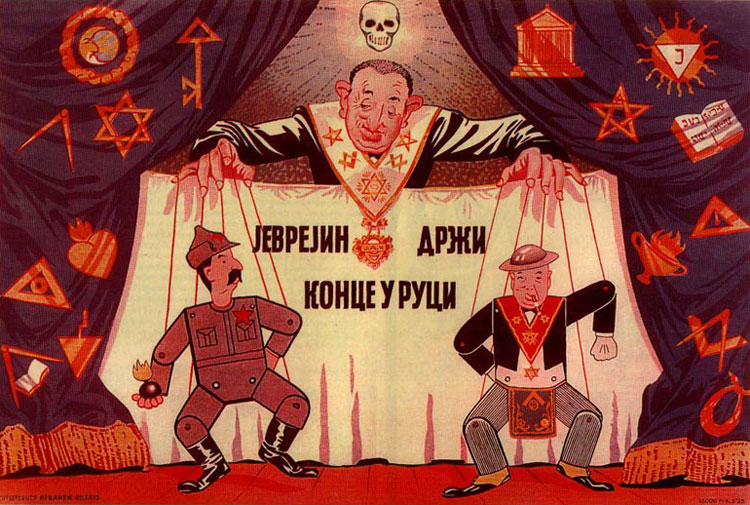(This takes nearly three minutes to read.)
The proposed law against secret societies has been presented to the House as a proposed law against freemasonry; this is the first real act of fascism to assert what the Fascist Party calls its revolution. We, as a communist party, want to seek out not only the reason for the presentation of this bill against organizations in general, but also the meaning of why the Fascist Party has presented this law as directed primarily against freemasonry.
[…]
Fascism, then, today declares itself to have practically “conquered the State.” What does this expression, now become a cliché, mean? And what meaning, in this sense, has the struggle against freemasonry?
Since we think this phase of the “Fascist conquest” to be one of the most important undergone by the Italian state, and as we represent the interests of the majority of the Italian people, the workers and peasants, we believe that an analysis of the question, even if rushed, is necessary.
What is freemasonry? You have spoken at length on the spiritual significance, the ideological currents which it represents, &c.; but all of these are forms of expression which you use only to convince yourselves.
Freemasonry, given the manner in which Italy was united, given the initial weakness of the Italian capitalist bourgeoisie, freemasonry was the the only real and effective party which the bourgeois class had for a long time. It must not be forgotten that little less than twenty years after the entry of the Piedmontese into Rome, parliament was dissolved and the electoral body of about three million was reduced to 800,000.
[…]
What do fascists propose against these solutions? They propose a law supposedly against freemasonry; they claim to want to so conquer the State. In reality fascism struggles against the only effectively organized force which the bourgeoisie have in Italy, to supplant it in occupying the posts which the state gives its civil servants. The fascist “revolution” is only the replacement of one administrative personnel by another.
[…]
The reality then is that the law against freemasonry is not principally against freemasonry; in the end fascism will easily come to a compromise with freemasonry. […] Fascism uses against freemasonry, in a more intense form, the same tactic as it used against all the non‐fascist bourgeois parties: first it created a fascist cell in those parties; then it tried to extract from other parties the forces most useful to it, not managing to take them over as it intended…
[…]
Fascism has not managed to completely absorb all the parties into its organization. With freemasonry it has employed the political tactic of noyautage, then the terrorist system of burning lodges, and finally it employs legislative action, through which certain persons of the company boards and the high bureaucracy will end up giving in to the masters so as not to lose their jobs, but the fascist government will have to come to a compromise with freemasonry. What do you do when your enemy is strong? First, you break his legs, then you make a compromise from a condition of obvious superiority.
[…]
This law will not manage to slow down the movement which you yourselves are preparing in the country. Since freemasonry will enter the fascist party en masse and will form a tendency within it, it is clear that with this law you hope to impede the development of large worker and peasant organizations. That is the real value, the real meaning of the law.
[…]
In conclusion: freemasonry tips the scales in favour of the reactionary anti‐proletarian measures! It is not freemasonry which matters! Freemasonry will become a wing of fascism. The law is intended for the workers and peasants, who will understand so very well from the use that will be made of it. To these masses we want to say that you will not succeed in suffocating the organisational forms of their class life, because against you stands the whole development of Italian society.
(Emphasis added.)
It is easy to see parallels here to modern campaigns against ‘extremist content’, which tend to cause far more damage to the far left than the extreme right.
On a mostly unrelated note, today (that is, July 5th) is the 99th anniversary of the “Pact of Cordial Collaboration between the Kingdom of Italy and the Czechoslovak Republic”, the long‐term importance of which seems to have been marginal, hence why I did not make it the focus of today.


